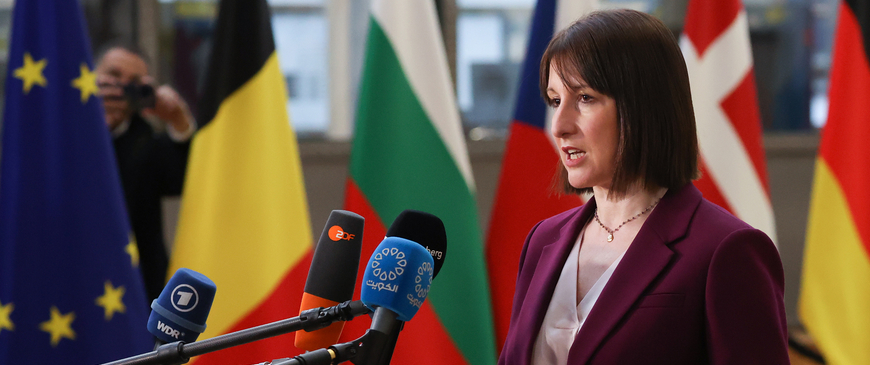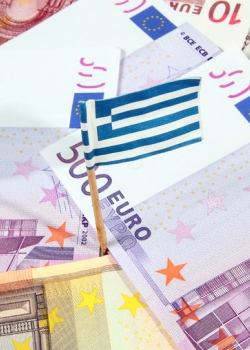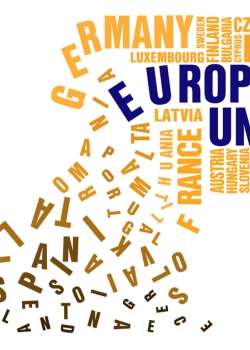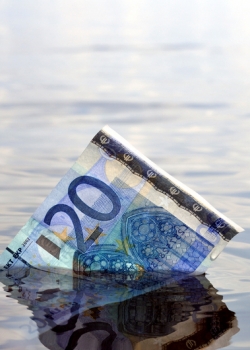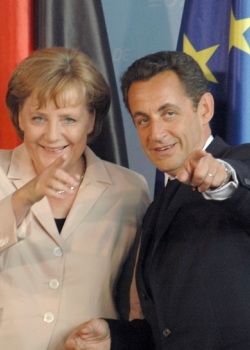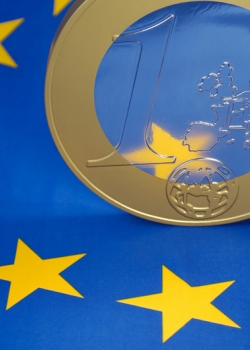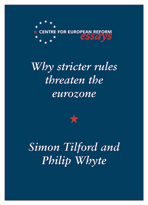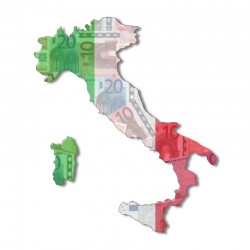Single market, competition & trade
Greece's real challenge
03 February 2012
Greece's new bail-out package needs less austerity and more structural reforms. A bloated and immobile public sector remains a drag on growth.
Issue 82 - 2012
27 January 2012
- Needed: A growth strategy for Europe, Simon Tilford
- Why an EU financial transactions tax is a red herring, Philip Whyte
- The US declares peace in Europe, prematurely, Tomas Valasek
The Baltic states and Ireland are not a model for Italy and Spain
27 January 2012
Were Italy and Spain to emulate the Baltics states and Ireland, the implications for the European economy and the future of the euro would be devastating.
Needed: A growth strategy for Europe
26 January 2012
The struggle to address the eurozone crisis means that Europe's unprecedented economic malaise is receiving far too little attention. To the extent that the EU has a growth strategy it relies heavily on the adoption of structural reforms in the crisis-hit eurozone economies. But such reforms alone will not drive...
Why an EU financial transactions tax is a red herring
26 January 2012
Ever since it was first mooted in the 1970s, a financial transactions tax (FTT) has often been thought of as an interesting idea that cannot work in practice (because it needs to be adopted universally if it is not to be undermined by tax arbitrage). In other words, the difficulty...
The UK-EU split: The impact on Central Europe
13 December 2011
The UK decision to boycott the new EU treaty has left like-minded countries in Central European in weaker position to resist France's etatist tendencies.
Britain on the edge of Europe
09 December 2011
The Brussels agreement on December 9th will weaken British influence in the EU and could damage the single market.
EU summit: Enough to save the euro?
08 December 2011
The UK’s decision to marginalise itself by vetoing a new EU-27 treaty has dominated the post-summit media coverage. And for good reason – it could prove a big step towards UK withdrawal from the EU. However, the bigger question is whether the agreement reached at the summit will do anything to address the fundamentals of the euro crisis.
The French learn followership
30 November 2011
France is backing Germany’s wish for a new treaty to enshrine strict budgetary discipline. In exchange, it hopes Germany will save the euro.
The curious case of German leadership
29 November 2011
Is Berlin leading in the euro crisis? Many Germans say it does, by spreading ‘stability culture’ – but not by telling the ECB what to do.
The ECB must stand behind the euro
28 November 2011
The eurozone is now subject to a full-blown run on its bond market. Spanish and Italian borrowing costs are now higher than those of Greece, Ireland and Portugal when they were forced to seek bail-outs from the EU and IMF. The crisis has spread to Belgium and France, and even...
The eurozone and the US: A tale of two currency zones
21 November 2011
The US and the eurozone are very different monetary unions. These differences explain why financial markets are picking on the eurozone and not the US.
Why stricter rules threaten the eurozone
09 November 2011
To restore confidence in the eurozone, leaders must fix its institutional flaws and stretch some rules in the interim. Instead, they are doing the opposite.
Global trade imbalances threaten free trade
17 October 2011
The G20 needs a strategy to rebalance demand between the surplus and deficit economies if the world is to avoid a slide into protectionism.
Britain, the City and the EU: A triangle of suspicion
11 October 2011
Britain has abandoned 'light touch' regulation and signed up to greater supervisory powers at EU level. Yet the Channel looks as wide as ever.
Eurozone crisis: Higher inflation is part of the answer
03 October 2011
The ECB’s inflation target is too low for a currency union. It risks depressing economic growth and makes it hard for countries like Spain and Italy to regain competitiveness.
Merkel's euro shackles
28 September 2011
Chancellor Angela Merkel’s apparent inability or unwillingness to take bold steps could sink the euro. Yet is it even realistic to expect her to overcome growing opposition from within her own coalition government, a hostile public mood and the red lines drawn by a powerful constitutional court? Merkel cannot...
Sticking to the rules will not rescue the eurozone
28 September 2011
Most events have an official – or at any rate widely accepted – narrative. In much of Europe, the narrative of the eurozone crisis goes something like this: this is not a crisis of the eurozone, which has been a success.
The euro: Reaching the endgame?
19 September 2011
Eurozone policy-makers have dug in their feet, preferring to deepen the crisis than admit their mistakes. Unless reason trumps moral posturing soon, dissolution of the eurozone is inevitable.
Eurozone crisis: Can contagion to Italy be arrested?
05 August 2011
The eurozone's debt crisis has spread to Italy. It is becoming increasingly doubtful that much-needed domestic economic reforms will be sufficient to restore market confidence in the country.


